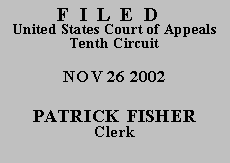

| ANGEL BENITA PIEDRA, |
|
Defendants. Mr. Piedra filed suit against the Defendants, all prison officials working at the United States Penitentiary in Leavenworth, Kansas, under 42 U.S.C. § 1983 alleging that they assaulted him and thereby violated his constitutional right to be free from cruel and unusual punishment. After appointing counsel, the district court concluded that there had been no Eighth Amendment violation, or in the alternative, the Defendants were entitled to qualified immunity. I R. Doc. 44.
On appeal, Mr. Piedra raises the following issues: (1) the district court erred in concluding that his Eighth Amendment rights were not violated; (2) he received ineffective assistance of counsel; (3) new evidence reveals the possibility that federal prison officials have covered-up details of his case; and (4) the prison officials used excessive force in relation to need.
We affirm for substantially the same reasons set forth by the district court. Concerning the use of force, summary judgment was properly granted because although we may consider the facts alleged in Mr. Piedra's sworn complaint, counsel's response to Defendant's summary judgment motion contained no facts tending to counter those facts contained in the Defendants' summary judgment materials. I R. Doc. 42. Therefore, it is undisputed that the prison officials were acting in response to a disturbance, and the district court properly considered "whether force was applied in a good-faith effort to maintain or restore discipline or maliciously and sadistically to cause harm." Hudson v. McMillian, 503 U.S. 1, 6 (1992) (quoting Whitley v. Albers, 475 U.S. 312, 32021 (1986)). Mr. Piedra's claim fails for insufficient evidence to show a genuine issue of material fact on an issue where he bears the burden of proof. See Celotex Corp. v. Catrett, 477 U.S. 317, 322-23 (1986) (summary judgment is appropriate where non-movant fails to make a sufficient evidentiary showing on an element essential to his case); Whitley, 475 U.S. at 322 ("Unless it appears that the evidence, viewed in the light most favorable to the plaintiff, will support a reasonable inference of wantonness in the infliction of pain under the [above] standard . . . , the case should not go to the jury.").
As to Mr. Piedra's ineffective assistance claim, we have held that "'the right to counsel in a civil case is not a matter of constitutional right under the Sixth Amendment,'" MacCuish v. United States, 844 F.2d 733, 735 (10th Cir. 1988) (quoting Cullins v. Crouse, 348 F.2d 887, 889 (10th Cir. 1965)), and that the appropriate remedy for such a claim is a malpractice suit. MacCuish, 844 F.2d at 73536.
Mr. Piedra attached to his opening brief a newspaper article that he claims is new evidence showing the prison officials falsified documents in this case. The article actually details the guilty plea of a federal corrections officer in Beaumont, Texas, not Leavenworth. Be that as it may, such evidence is appropriately filed as a Fed. R. Civ. P. 60 motion in the district court where judgment was entered, not as a matter of first instance in the Court of Appeals. See Fed. R. Civ. P. 60(b).
Finally, Mr. Piedra includes various additional arguments in his brief. First, he asserts a claim of negligence on the part of the prison officials. It is well settled that a mere lack of due care on the part of an official does not rise to the level of a constitutional violation. Daniels v. Williams, 474 U.S. 327, 33031 (1986). He also claims the district court was inappropriately biased in violation of 28 U.S.C. §§ 454 and 455. His claim, however, is nothing more than a general grievance with the outcome of the district court's order and is insufficient to show bias. See Green v. Branson, 108 F.3d 1296, 1305 (10th Cir. 1997) (adverse rulings cannot in and of themselves provide basis for disqualification).
AFFIRMED.
Entered for the Court
Paul J. Kelly, Jr.
Circuit Judge
*. This order and judgment is not binding precedent, except under the doctrines of law of the case, res judicata, and collateral estoppel. This court generally disfavors the citation of orders and judgments; nevertheless, an order and judgment may be cited under the terms and conditions of 10th Cir. R. 36.3.
2. After examining the briefs and the appellate record, this three-judge panel has determined unanimously that oral argument would not be of material assistance in the determination of this appeal. See Fed. R. App. P. 34(a); 10th Cir. R. 34.1(G). The cause is therefore ordered submitted without oral argument.